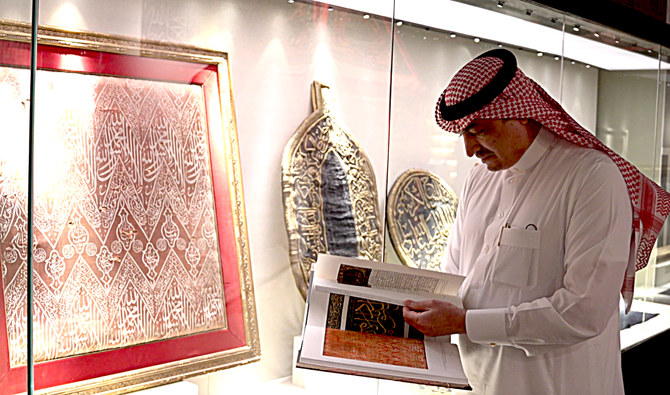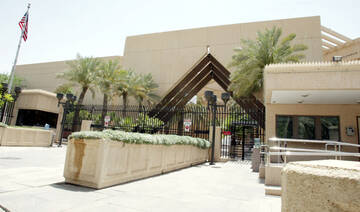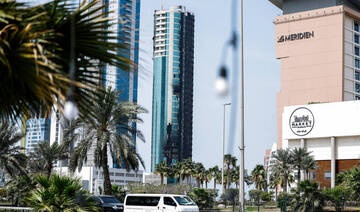JEDDAH: Islamic art is renowned around the world for its unique, beautiful and exquisite floral, arabesque, geometric and calligraphic patterns. It encompasses a wide range of artistic forms, including architecture, calligraphy, painting, glass, ceramics and textiles.
Its origins can be traced back centuries, and it can be found adorning buildings, mausoleums, museums and palaces built by empires through the ages in the East and West.
The recently opened House of Islamic Arts in Jeddah is a unique museum in the Kingdom, containing more than a thousand precious historical exhibits from a number of countries. The items on display reflect the diversity of Islamic art from a range of eras.
The collections, sourced from international auctions and private collections, are the result of years of hard work and research.
The museum was founded by Saleh bin Hamza Serafi, a Saudi businessman, owner of the Mohammed Saleh Serafi Foundation, and a shareholder in Bank Albilad. It opened on Sep. 23 last year, after its license was granted by the CEO of the Saudi Museums Commission, Stefano Carboni.
The establishment of the House of Islamic Arts is in line with the aims of the Kingdom’s ambitious Vision 2030 development and diversification program, which includes plans to increase the number of Saudi museums across the country.
According to its founders, the new museum aims to be a center for information and scientific research, and a beacon for dialogue and cultural exchange by attracting visitors from all over the world.
“The idea of the museum was there seven years ago when Anas Serafi, the son of the museum’s founder, started collecting pieces for his special collection,” the museum’s curator, Mohammed Al-Kurbi, told Arab News.
“After that, we started to think of how we could develop it according to the umbrella of international museums, as we wanted to build the museum to global standards.”
FASTFACTS
The museum was founded by Saleh bin Hamza Serafi, a Saudi businessman, owner of the Mohammed Saleh Serafi Foundation, and a shareholder in Bank Albilad.
The establishment of the House of Islamic Arts is in line with the aims of the Kingdom’s ambitious Vision 2030 development and diversification program, which includes plans to increase the number of Saudi museums across the country.
The House of Islamic Arts has six main halls each of which is devoted to a particular form of Islamic art.
“We looked at the existing Islamic art museums in the region and globally, and we found out that Islamic Art museums are divided into five to six sections,” Al-Kurbi said. “Each section speaks about a different story and material that have to do with Islamic Art.
“Thus, we decided to have six different halls in the Jeddah Museum including: Pottery and glass; coins; the art of cultural communication between Muslims and non-Muslims on an artistic level; calligraphy; manuscripts; and finally the textile hall, in which we focus on the covering of the Kaaba and the Mahmal.”
He added: “We were keen to represent the prominent schools of art related to each section, and we also made sure to include a masterpiece in every hall that cannot be found elsewhere in the world.”
Storytelling is an important aspect of each of the six halls. The pottery hall, for example, takes visitors on a journey through time to reveal how primitive industries developed and how pottery came to be colored, glazed, gilded, decorated and ornamented with Islamic scripts over time.
The textile hall highlights the history of pilgrimage caravans and features two unique examples of Mahmal that were used during Hajj between the 13th and mid-20th century.
A Mahmal is a passengerless wooden structure, covered with luxurious ceremonial textiles and carried on the back of a camel as part of the caravans that took pilgrims to Makkah for Hajj. It was used by the sultans of ruling empires to emphasize their roles as sovereigns or protectors of Islam’s holy sites. It was used to store a Kaaba cover, accessories made of gold, or embroidered textiles.
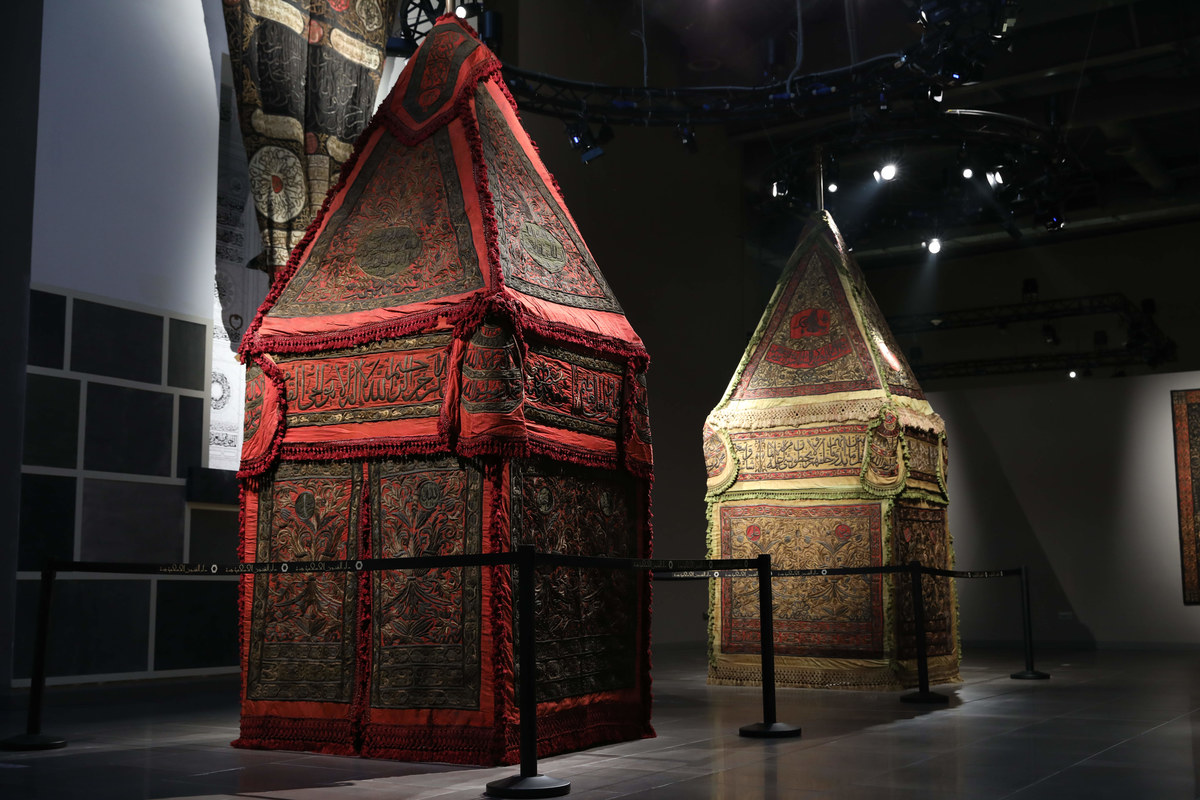
Two unique Mahmal that were used during Hajj between the 13th and mid- 20th century.
“When we talk about textiles in Islamic art, we are not talking about the elements of the textile so much as we are talking about the culture, heritage and values,” said Al-Kurbi.
Another important exhibit in the museum’s textile hall is a red cloth with white text embroidered from natural silk. It was used in the era of King Abdulaziz as the interior covering for the Kaaba, or the “interior kiswah.” Currently, the interior covering of the Kaaba is green, and only two examples of a red version exist in the Kingdom; the other is held by the King Abdulaziz Foundation for Research and Archives.
“A number of pieces displayed are personal collections belonging to my father, who has a long history of working in the field of currency exchange, and has an interest in collecting Kaaba curtains and rare Kaaba textiles, four of which are in the Jeddah Museum and cannot be found elsewhere in the world,” said Anas Serafi.
His father also collects silverware, incense burners, swords and anklets, among other things, he said.
“My father still keeps a collection of silverware and rarities in his house but only some of them are displayed in this museum as they represent very important periods,” he added.
In the display hall devoted to Islamic currency, about 500 coins are arranged chronologically. They date from the days of the Umayyad and Abbasid caliphates right up to modern-day Saudi Arabia. There are also coins from the Sassanid and Byzantine empires, which were used during the time of the Prophet Muhammad, along with gold, silver and copper coins from the time of Omar Ibn Al-Khattab with the words “There is no god but Allah” engraved on them.
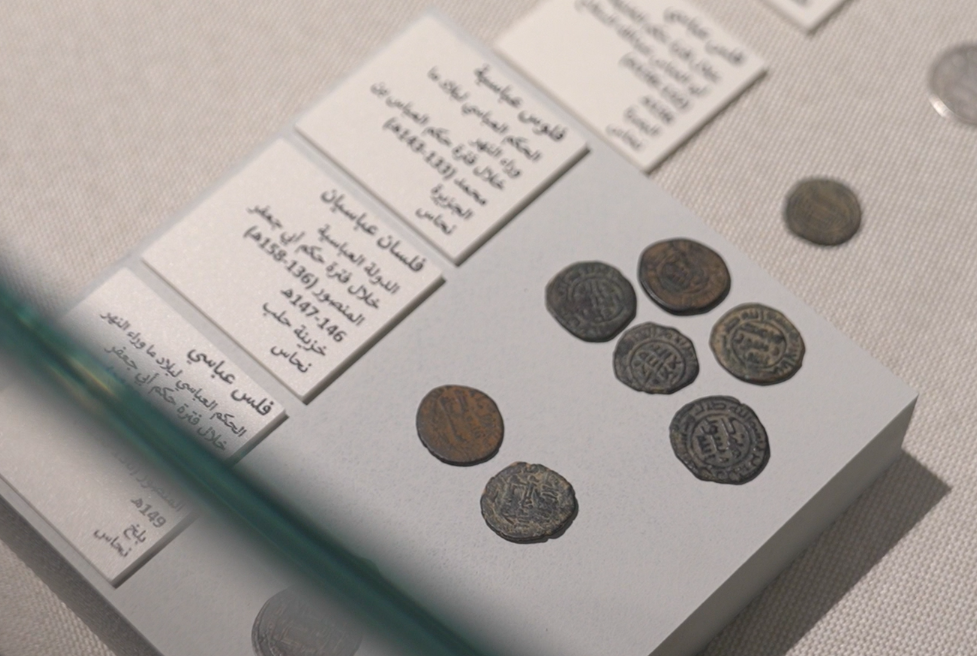
In the display hall devoted to Islamic currency, about 500 coins are arranged chronologically.
“When people came to Makkah for Umrah trips, and caravans of pilgrims, many rare currencies of the world used to pass through my father’s hands, and since then he has taken it as a wonderful opportunity to collect different rare coins,” said Serafi.
“Many coin collectors used to offer these coins to him for sale and from there my father created his giant coin collections, dating back thousands of years.”
In the manuscript hall, there is an array of extravagant and ornate books on display representing more than a dozen types of Arabic calligraphy. There is a rare copy of the Qur’an dating back about 300 years, from the Ottoman era, produced by Ismail Al-Zuhri, one of the most famous calligraphers in the Islamic world. It showcases the beauty and craftsmanship of calligraphy through gilded verses and plant decorations, and is bound in tanned leather.
Serafi exclusively revealed to Arab News plans for a number of exhibitions and other events this year.
“About seven years ago, we had this idea of having a museum in a mall that would showcase the culture of Islamic art,” he said.
“In addition to the House of Islamic Arts, two other museums are set to open soon. Al-Makktain museum will explore the history of the Two Holy Mosques through the display of rare pictures and drawings from around the world by painters, travelers and photographers.
“The Jeddah Gate of Makkah museum will showcase the pilgrims’ journeys from Jeddah to Makkah and the ancient caravan routes in the desert.”


